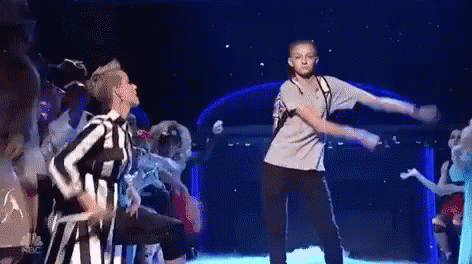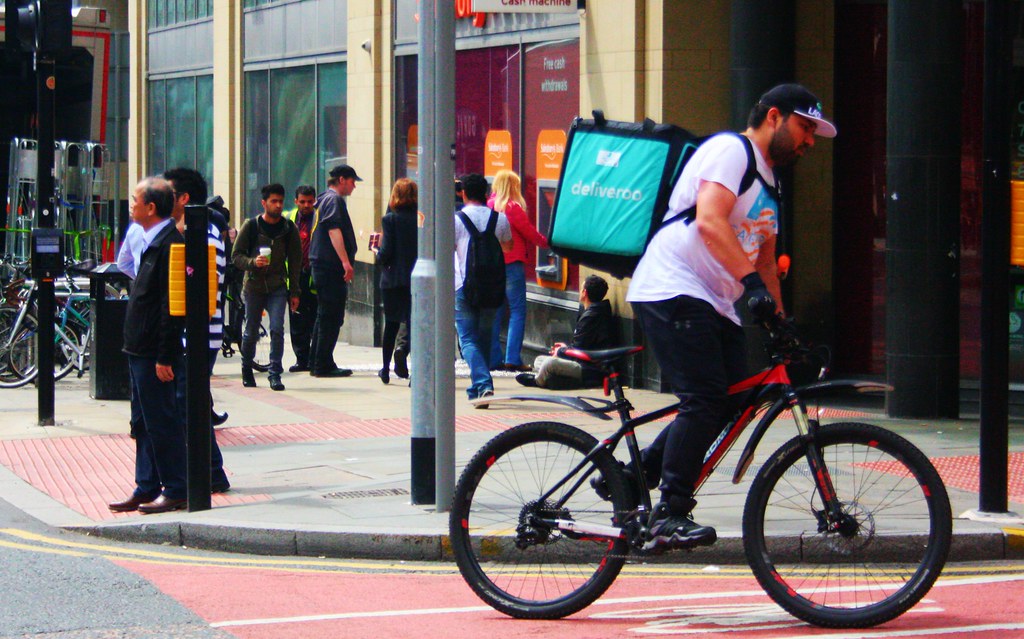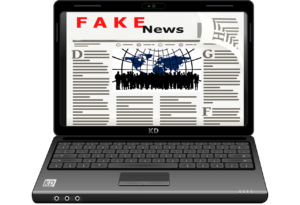This is the last episode of LEP before the end of 2018.
It’s Christmas and New Years Eve is approaching, so it’s time for the traditional Christmas episode of LEP! In this one I’m going to read some Christmas stories and a couple of poems which are a bit different to the normal stuff you get at this time of year. Also, keep listening for a funny appearance by The Beatles.
![]() [DOWNLOAD]
[DOWNLOAD]
Episode Transcript & Notes
Luke, I know that it’s Christmas and it’s a time of giving, but why are you uploading so many episodes at the moment? We can’t keep up!
The Christmas holiday is about to start and I’ll be quiet for a few weeks, so I’m giving you quite a lot of stuff now for you to listen to while I’m away.
That includes this episode in which I would like to wish you a very merry Christmas (if you celebrate it) and a Happy New Year too, then ramble to you a little bit and then tell you one or two Christmas-themed stories, read a couple of Christmassy poems and there will be an appearance by The Beatles as well, as you’ll hear later on.
First of all, a bit of a ramble (not too long).
I’ve uploaded a lot recently. New free podcast episodes, new phrasal verb episodes and new premium episodes. It’s quite a lot of stuff, which might be difficult to keep up with, but as I’ve said, I won’t be uploading for a few weeks so it should be enough time for everyone to catch up.
Just yesterday I uploaded another series (3 parts) of premium episodes for December, and that is all about language from the Alan Partridge episodes I did in October. They were popular episodes and they were full of really nice language – I mean, descriptive vocabulary and noun phrases I used to talk about Alan, and also various other expressions, phrases and bits of grammar that came up in the clips that we listened to. So I devoted a couple of Premium episodes to that and also the usual memory tests and pronunciation drills. PDF worksheets are available for all the premium episodes.
There are also new phrasal verb episodes in the premium package now too, and more arriving on a regular basis.
If you want to become a premium LEPster, go right ahead, be my guest. You’ll get access to all of the premium content in the ever-growing library, and all the stuff that will be published in the future too. www.teacherluke.co.uk/premium to get started. Also, you’ll be supporting the podcast with a small monthly contribution – about the price of a coffee or beer every month.
I tell you what, I am super duper chuffed to finally be making premium episodes and having this project alongside the normal episodes of the podcast. I hope those of you out there who are premium Lepsters are getting into the work I’ve been doing. Thank you for your support for the podcast too. You’re making it possible for me to spend more time on this, and that’s going to help me to improve and develop what I’m doing.
It’s been a pretty good year for LEP with lots of episodes about different things. I hope you’ve enjoyed them all and found them useful for your English. The year started with the birth of our daughter, and I talked about it in episode 502 – that’s about 65 episodes ago, can you believe it? I’ve done 65 episodes of the podcast this year, plus all the premium ones. Quite a productive year. Episode 502 – that’s when you first heard my wife’s voice on the podcast.
Sometimes during the year I think you heard the voice of my daughter in episodes, when I was recording stuff while she was in the flat with me. That may happen more and more as she grows up.
She’s not really speaking yet, although she is walking. She is making more and more complex noises though, not exactly speaking but making sounds with different bits of intonation and stuff – things that sound like questions, things that sound like “yaay” etc. She’s started doing this thing where she lifts objects to her ear and kind of goes “hello?” as if she’s speaking on the telephone. No idea where she got that from because we usually use headphones when we’re on the phone at home.
She also understands various things that my wife and I say to her, in both languages. She’s very fond of pointing at things too and kind of going “huh??”, like “What’s that??” As she speaks more, I’m sure I’ll record her sometimes so you can hear her learning to speak over the next few years. I’m looking forward to doing that.
A shout out to my students at the British Council
I teach 4 groups of students at the British Council at the moment, across different levels. They’re all adult learners of English and we’ve had some great classes over the last year. Hello, if you’re listening. I want to share a video that some of them were involved in.
So, at the BC in Paris we offer a social programme called English Extra, which involves things like social events, drinks, talks by teachers and guests (I did one about British humour if you remember) and also weekend trips to London. The idea is that it gives our students more opportunities to socialise in English and get more talking time in English, basically. Also, it’s just a lot of fun and we have some really outgoing, funny and social people in our adult classes at the moment, including in my classes, which is great because it means we have a lot of fun while also learning English. So, some of them went to London recently and as part of the trip they made a little video for YouTube. It’s called How Much do Londoners Know about France? The students went around, interviewing British people in the street, asking them various questions about France. The results are pretty embarrassing, I must say!
The average Londoner doesn’t seem to know that much about their nearest continental neighbours! To be honest, I wonder if the same would be true about the French, in fact I think it would be. Anyway, the video is pretty funny and I want to share what my students did, so check it out – you’ll see the full video on the page for this episode. I also shared it on social media today.
My students at the British Council made this video in London
Do you celebrate Christmas? Do you have any plans?
What are you doing for Christmas? Is it something you celebrate in your country? Do you have any plans?
This year we’re going to spend some time with my wife’s family in France on the 24th and 25th – Christmas Eve and Christmas Day, doing Christmas the French way, which involves Champagne (of course – although I’m off the booze at the moment – might have to make an exception for Christmas) and then on Boxing Day (which is now also our daughter’s birthday, the poor girl! It’s no fun to have your birthday at Christmas) we’re going to the UK to spend about a week with my parents in their house, which will be great. My Mum and Dad are looking forward to seeing us, but mainly they want to see their granddaughter. It’s cool, she seems to get a boost when she sees them. It’s funny, she loves music and will dance and clap her hands when you play music to her. I am currently educating her in the ways of The Beatles, by playing Beatle music to her every day. It might backfire and she’ll end up sick of it, I don’t know. Hopefully she’ll grow to like their music like I do and my parents do too.
So I’ll be on holiday from the moment that I publish this episode until some time in early 2019. I’m not sure when the podcast will be back exactly. But you’ve got plenty of content to keep you busy in the meantime, right? All the recent episodes and the premium content. By the way, in those premium episodes it’s not just all serious and boring language work. I like to have a laugh there too, it’s just there’s more of a focus on teaching you language and helping you to practise your pronunciation.
Right, so that’s enough rambling.
‘Alternative’ Christmas Stories / Poems / Jokes + The Beatles
I was scouring the internet for good stuff relating to Christmas – stories, mainly. I wanted to read a good Christmas story or a couple of short stories or something. I haven’t found much! Most of the stuff I found is quite cheesy and crap to be honest so it’s been a bit difficult to find the right things.
So, this year, after searching and thinking, I’ve come up with one funny little story, some slightly odd poems, a funny Christmas tradition and The Beatles…
As I said, most of the stories with a Christmas theme that I found online were quite cheesy and cliched, and that’s a bit dull. But I did find several stories which are a bit different or maybe you could say alternative. By that I mean they take a different look at Christmas time.
These stories and poems are quite weird and a bit dark too in some places, but I’ve decided that’s ok because I’d rather have some weirdness and funniness than the usual Christmas stuff about sleigh bells, reindeers and all those other cliched tropes of Christmas – not that there’s anything wrong with that, I do love the cosiness of Christmas when you’re indoors with your family (as long as you’re not trying to kill each other), eating nice food (prepared by someone else possibly, probably your Mum or my Mum in this case – thanks Mum) and generally having a lovely and jolly time. There’s nothing wrong with that of course – that’s what Chrimbo is all about. But I’m sure you’re getting plenty of that stuff everywhere else, in shops, bars, on TV, on the radio, online etc. I don’t know where you are, but certainly in the UK you start to get inundated with the usual Christmas stuff from as early as November these days, and it starts to become a bit annoying after a while.
For example – Christmas songs…
“Well the weather outside is.. blah blah.. and the blah is blahdy blah blah, let it snow let it snow let it snow!”
“Rudolph the red nosed reindeer, had a very shiny nose…”
“Driving home for Christmas…” etc
Nothing wrong with that stuff really, but it is everywhere, all the time.
So instead of that kind of stuff, here are some alternative takes on Christmas time. Some funny(ish) stuff, some weird stuff, some slightly disgusting stuff, some slightly dark stuff and then The Beatles as well, as you’ll hear later.
Let’s start with a funny little story I found on a website called www.funny-jokes.com
The Missing Five Pound Note
Chippenham George worked for the Post Office and his job was to process all the mail that had illegible addresses. One day just before Christmas, a letter landed on his desk simply addressed in shaky handwriting: ‘To God’. With no other clue on the envelope, George opened the letter and read:
Dear God,
I am a 93 year old widow living on the State pension. Yesterday someone stole my purse. It had £100 in it, which was all the money I had in the world and no pension due until after Christmas. Next week is Christmas and I had invited two of my friends over for Christmas lunch. Without that money, I have nothing to buy food with. I have no family to turn to, and you are my only hope. God; can you please help me?
Chippenham George was really touched, and being kind hearted, he put a copy of the letter up on the staff notice board at the main sorting office where he worked. The letter touched the other postmen and they all dug into their pockets and had a whip round. Between them they raised £95. Using an officially franked Post Office envelope, they sent the cash on to the old lady, and for the rest of the day, all the workers felt a warm glow thinking of the nice thing they had done.
Christmas came and went. A few days later, another letter simply addressed to ‘God’ landed in the Sorting Office. Many of the postmen gathered around while George opened the letter. It read,
Dear God,
How can I ever thank you enough for what you did for me? Because of your generosity, I was able to provide a lovely luncheon for my friends. We had a very nice day, and I told my friends of your wonderful gift – in fact we still haven’t got over it and even Father John, our parish priest, is beside himself with joy. By the way, there was £5 missing. I think it must have been those thieving fellows at the Post Office.
George could not help musing on Oscar Wilde’s quote: ‘A good deed never goes unpunished’
And now, three poems by modern authors. Poems like these are good. They’re written in plain English and they have a rhythm and rhyme to them. It’s a good idea to practise saying them yourselves. See if you can get the rhythm right.
An alternative Christmas Poem from Roald Dahl
Mother Christmas
“Where art thou, Mother Christmas?
I only wish I knew
Why Father should get all the praise
And no one mentions you.
I’ll bet you buy the presents
And wrap them large and small
While all the time that rotten swine
Pretends he’s done it all.
So Hail To Mother Christmas
Who shoulders all the work!
And down with Father Christmas,
That unmitigated jerk!”
[c. RDNL]
Explain some of the vocab.
Alternative Santa: A Christmas Poem
Roger McGough by the way is from Liverpool and was part of a poetry group there in the sixties called The Scaffold. Another member of The Scaffold? Mike McCartney – Paul’s brother. We used to read Roger McGough’s poems when we were children. He used to write a lot of funny little poems for kids, but some of his work is actually really good for adults. It’s not too fancy or pretentious, it is written in plain English and for me it does exactly what poetry should do, makes you feel something inside. I also like his brief style. Less is more.
By Roger McGough
‘I’m fed up looking like Father Christmas,’
Muttered Father Christmas one year
‘I need a new outfit, I must move with the times
So for a start, it’s goodbye reindeer’
He googled Alternative Santas
And was amazed at the stuff that appeared
He got rid of the holly-red costume
Had a haircut, and shaved off his beard
Spent his days in front of a computer
In a cave hollowed out of the ice
Wearing a tee shirt emblazoned Merry Xmas
And jeans (Amazon, Armani, half price)
Couldn’t wait to straddle his snow-ped
(The bargain he’d bought on eBay)
A rocket-powered silver toboggan [sledge, sled or sleigh]
His supersonic sleigh
Then one morning he thought, ‘Oh why bother
Delivering presents by hand
When it could all be done online
Busy parents will understand
We are lucky to live in a digital age
Where the aim is access and speed
SantaNet I’ll call the system
‘Santafaction guaranteed’
And that was years and years ago
Times that children barely know
Midnight mass and mistletoe
Christmas carols and candle glow
Sleigh bells ringing across the snow
And Santa singing Yo ho ho
For that was years and years ago
And that was years and years ago.
This poem appeared in the Telegraph on December 7th, 2013
Hmmm, but what does it mean?
This next one starts out quite sweet, but it gets a bit dark. I think it’s a brilliant poem though, even if it is quite sad.
The Trouble with Snowmen by Roger McGough
‘The trouble with snowmen,’
Said my father one year
‘They are no sooner made
than they just disappear.
I’ll build you a snowman
And I’ll build it to last
Add sand and cement
And then have it cast.
And so every winter,’
He went on to explain
‘You shall have a snowman
Be it sunshine or rain.’
And that snowman still stands
Though my father is gone
Out there in the garden
Like an unmarked gravestone.
Staring up at the house
Gross and misshapen
As if waiting for something
Bad to happen.
For as the years pass
And I grow older
When summers seem short
And winters colder.
The snowmen I envy
As I watch children play
Are the ones that are made
And then fade away.
Roger McGough
Something a bit disgusting, or is it? An odd Christmas tradition from Catalonia. The Caganer.
Catalonia is a region in Northwestern Spain. Barcelona is the most famous city there. Some of you may be there right now. Lovely part of the world.
Apparently they have a slightly odd tradition there. The Caganer. It’s a little figuring of a man pooing on the floor. Yuk, disgusting! You might think, but actually it’s a long-standing tradition in the region and is a symbol of good luck and also renewal for the coming new year.
This is an article from nowIknow.com (I brilliant email list with fascinating and funny little stories every day)
The Tradition of Christmas Poo in Catalonia
Do you have any slightly odd or funny Christmas traditions or new year traditions?
A Beatles Christmas Record 1964 (one that my Mum had in her record collection)
Why are we going to listen to this? It’s interesting, funny, charming and silly and maybe you’ve never heard The Beatles speaking before.
Every year The Beatles recorded a Christmas message for their fans. The message was distributed to members of the fan club on floppy 7 inch ‘vinyl’ (but not vinyl, it was plastic or something) records. My Mum was a member of the fan club in the 60s and she got these records in the post, I think. She still had them as James and I were growing up, and we used to listen to them as children too. I think James is now the owner of these records. I sincerely hope that he’s looking after them because they will be worth quite a lot of money one day. I’ve seen them on eBay for over £300.
As well as being great song-writers, The Beatles were naturally very funny. They were quick-witted, silly and surreal. Part of that is because of they were from Liverpool, and Scousers naturally are very witty people, but partly because John, Paul, George and Ringo were talented and funny in their own right. They did not take themselves seriously at all, which is one of the reasons they were so charming.
You can see this in their films, but their humour came out best when they were just being spontaneous in interviews and in situations like this where they’re in the studio reading out some comments that were written by someone else, maybe a member of staff from the record company. They are supposed to be reading out the messages but they can’t help fooling around, and the results are pretty funny. Their sense of humour is still fresh I think, even though this was over 50 years ago.
Here are some things you should look out for as you listen to this clip.
First they seem to run towards the microphone and then run away again at the end.
The text they are supposed to be reading was written by someone else, and was written by hand, so they have some trouble reading it and make a few mistakes sometimes. There are also a few little ad-libs here and there. John keeps saying it says here, to show that he’s reading someone else’s words.
Paul: (thanking the fans) Don’t know where we’d be without you
John: (instantly) in the army perhaps
Paul: I hope you’ve enjoyed listening to the records as much as we’ve enjoyed melting them! I mean, making them.
Paul: That’s all, except to wish you a Happy Christmas and a very new year. (A Merry Christmas and a Happy New Year)
John: (coughing loudly) Thanks all for buying my book and there’s another one out pretty soon, it says here. (clearly reading from a text). It’ll be the usual rubbish but it won’t cost much. You see, that’s the bargain we’re going to strike up. I write them in my spare time, it says here.
Paul: Did you write this yourself?
John: No, it’s somebody’s bad handwroter. (you expect him to say handwriting). Thanks a lot and a happy Christmas and a merry goo year. (goo is like slime or mud or something…)
George: I’d like to thank you for going to see the film. ‘SPECT (I expect) a lot of you saw it more than once. We had a quiet time making it. (George misreads the text and corrects himself) Actually we didn’t ! We had a great time making it. The next one should be completely different (he goes into a strong Liverpool accent) This time it’s going to be in colour. (John: Green)
When Ringo speaks, it’s just funny. I can’t explain why. I think it’s the way he delivers these pre-written lines in a slightly awkward and sweet manner. It’s just Ringo being Ringo. While he’s speaking someone drops something in the background and he says casually “Who’s droppin’ that?” They were natural and never cheesy or contrived, and that was very different at that time. They were very real, in a very formal world of show business.
Ringo: Those airport receptions knocked us out, man, great! (to knock someone out = to amaze/surprise someone)
At the end they break into a rendition of “Oh can you wash your father’s shirt, oh can you wash it clean?” which is probably some old song that people used to sing.
They run away again at the end.
Another Beatles Christmas record – 1965
This is the one from 1965, a year later.
More things to listen out for
Check out the nice crackling vinyl sound.
Paul: Got to thank everyone for all the presents this year
John: especially the chewed up pieces of chewing gum (I think they did receive this kind of thing), and the playing cards made out of knickers (not sure about that – they probably did receive home-made playing cards and stuff, and perhaps some knickers too!)
John: (in a weird creepy voice) On behalf of George and I, I’d just like to thank you for… (inaudible)
Paul: Well Ringo, what have we done this year?
Ringo: Well, I see you haven’t shaved again.
John starts singing a made-up song in a strong Scottish accent, with lyrics which are hard to understand because sometimes Scottish people speak in a dialect that English people don’t understand. John used to make up nonsense poetry and songs on the spot. He had a surreal sense of humour.
The band then go into a version of Auld Lang Syne which is a traditional Scots-language poem written by George Burns, the famous Scottish poet. It’s a song which is sung in Scotland and many parts of the English speaking world in order to celebrate new year’s eve. The boys here do a silly version of it. They continue to make up silly nonsense as they carry on recording the Christmas record. It’s as if the record company people, or whoever ran the fan club had just given up on writing messages for them, and have just let them record any old nonsense into the microphone, which is great for us!
John improvises a song which sounds like an Elvis record and Ringo shouts “Copyright John!” meaning that he can’t sing that because it’s protected by copyright. Paul then puts on a heavy working-class Liverpool accent and says “What are we gonna do that’s out of copyright?” and John replies (in the same accent) “How about we’ll gather lilacs in an old brown shoe?” I have no idea what he’s talking about. Maybe this is just an old reference that I don’t get, or it’s just John talking nonsense again, but I do like the way they go into these different accents all the time.
Apparently they were always like this, including when recording their albums in the studio. In fact it was their sense of humour that got them a recording contract with George Martin at EMI.
He was more impressed by their general humour than their music (in the beginning), although they proved themselves in the music department later, of course.
The boys do silly accents of old people and weather reporters on the radio. They do a Bob Dylan impression at one point.
John begins singing a made-up Christmas song and the lyrics end up becoming weird noises, then the others join in.
John was often the leader when it came to being ridiculous and absurd, but they were all so close and so quick that they could all keep up with it too.
John: (in a strong Liverpool accent) This is Johnny rhythm saying good night to youse all and god bless youse.
Paul: (in the same accent) All right well, ehhh, that’s got it done then. What are we gonna do now?
George: (Scouse accent) Has he turned it off? (listen for the way he says “turned” – “teeeeeerned it off” – that’s the Liverpool accent, the Scouse accent – exaggerated)
Paul or Ringo: Have you turned it off, la? (‘LA’ is a Scouse word meaning “Lad” or “mate”)
And that’s the end of their Christmas record for 1965.
I think we’ll leave it on that note then, eh?
All right then. Merry Chrimbo and have a very new year all right?
Speak to you in 2019. All the best!
Luke
Additional
Previous Christmas Episodes (Just in case you’re looking for more stuff to listen to during the break!)
A couple of years ago I read A Christmas Carol by Charles Dickens. It’s still available in the archive, if you want a nice Christmas story, sort of a bed time story (episode 320).
In fact there are a few Christmas episodes in the archive, if you’re feeling festive. You might have heard them already, but maybe you haven’t, or maybe it’s time to revisit them if you’re looking for more podcast action during the Christmas break.
From memory I remember one with my brother which I recorded in London, called “Christmas, it’s all about Family” (episode 78) and we aimed to chat about Christmas but ended up rambling about lots of other things, which was good fun.
The first time I spoke to Paul Taylor on the podcast was about 5 years ago, in December 2013 and we talked about Christmas traditions and his plans for the holidays (episodes 158 & 159).
I spoke to my mate Raphael Miller once at Christmas time and we did a fairly long episode called The A to Z of Christmas, which pretty much tells you everything you need to know about British Christmas culture (episode 160).
I spoke to Amber in 2016 and we chatted all about Christmas traditions again, with lots of funny anecdotes about things like my Dad’s competitions and games which he organises every year, and her son’s behaviour at Christmas time (406 A CHRISTMAS MEGARAMBLE with AMBER).
Last year was a bit of a blur because we were expecting the arrival of the baby, but I had a bit of a Christmas ramble in episode 501 I think, with some listener correspondence (including an email from Jesus) and I sang a Paul McCartney song I think (episode 501).
There are also a few episodes recorded with my family at Christmas time, which is sort of a tradition. These episodes: 79, 322 & 413. Not sure if I’ll get the chance to do that this year, we will see.


 Adjective: made to be used once only, and then thrown away or destroyed
Adjective: made to be used once only, and then thrown away or destroyed This comes from baseball originally, but it’s been used so much because of Brexit and the Northern Ireland border issue.
This comes from baseball originally, but it’s been used so much because of Brexit and the Northern Ireland border issue. (the) Floss
(the) Floss Noun: a person, typically male, middle-aged, and white, with reactionary views, especially one who supports the withdrawal of Britain from the European Union
Noun: a person, typically male, middle-aged, and white, with reactionary views, especially one who supports the withdrawal of Britain from the European Union Gaslight
Gaslight (the) Gig economy
(the) Gig economy Insta
Insta
 Echo chamber
Echo chamber noun: a small toy comprising of two or three prongs arranged around a central bearing, designed to be spun by the fingers as means of improving concentration or relieving stress.
noun: a small toy comprising of two or three prongs arranged around a central bearing, designed to be spun by the fingers as means of improving concentration or relieving stress. adjective: not identifying exclusively with one gender rather than another
adjective: not identifying exclusively with one gender rather than another
 The Collins Words of the Year
The Collins Words of the Year noun: (1) an antifascist organization (2) a member of an antifascist organization
noun: (1) an antifascist organization (2) a member of an antifascist organization Corbynmania
Corbynmania Cuffing season
Cuffing season Fake news
Fake news